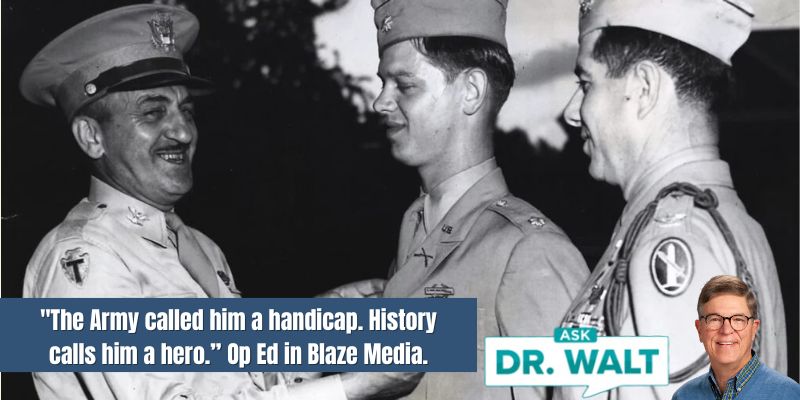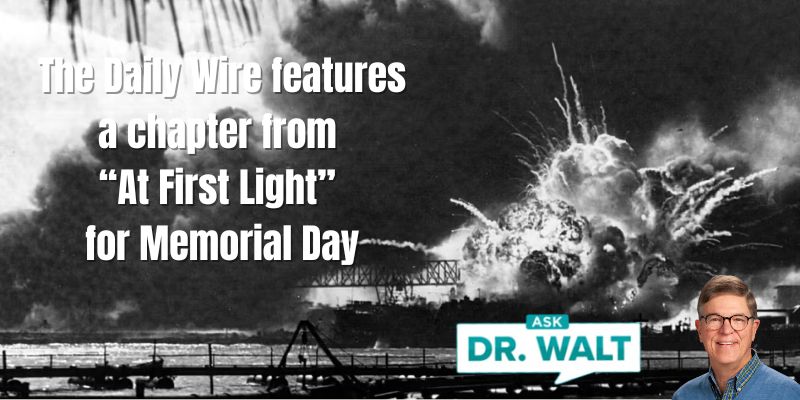
A Wonderful Christmas Story – Part 3
December 23, 2024
My favorite Christmas video of all time — The Inn Keeper’s Dream
December 24, 2024December 23, 1944 — On Christmas eve nearly all of the four million GIs in Europe were desperately homesick
As we all, here in 2024, celebrate the day before Christmas around the world, here’s a reminder of what 4 million men and women were doing 80 years ago today to secure liberty and freedom for the entire world.

The scenery was like a Christmas card. It drew oohs and ahs from even the most hardened warrior. One lieutenant later said, “If it hadn’t been for the fighting, that would’ve been the most beautiful Christmas. The rolling hills, the snow-covered fields and mountains, and the tall, majestic pines and firs really made it a Christmas I’ll never forget in spite of the fighting.[1]
During Christmas season of 1944 there were some 4 million young soldiers on the Western front, the great majority of them Protestants are Catholics. They said the same prayers when they were being shelled, directed to the same God.
They joined in denouncing godless communism, which was one side’s ally and the other side’s enemy.In World War II, no hatred matched that felt by Americans against Japanese, or Russians against Germans, and vice versa.
But in Northwest Europe, where Phil and his men were stationed, there was little racial hatred between the Americans and the Germans. How could there be when cousins were fighting cousins? About one third of the U.S. Army were German-American in origin.
The Christmas season highlighted the closeness of the foes. Americans and Germans alike put up Christmas trees and used the debris of war—chaff, the tinfoil dropped by bombers to fool radar—to decorate them.
Men who would never do such a thing at any other time prepared gifts for other men.[2]
~~~~~
Nearly every one of those four million men on the western front was home sick. Loneliness was their most shared emotion. Christmas meant family, and reminders of Christmas were all around these men at war. Family and home meant life. The yearning for home was overpowering.
Beyond thinking of loved ones, the men in the holes thought of the most ordinary day-to-day activities of civilian life—being able to flick a switch to light a room, no need for blackout curtains, able to smoke at night, hot food on the dishes served at a table, cold beer, a bed!, clean sheets, regular showers, changes of clothes, nobody shooting at you!—they though of these things and could have cried for missing them.[3]
~~~~~
On Christmas eve and Christmas day the men on both sides of the line had an image of a manger in Bethlehem in their minds. They sang the same carols. The universal favorite was “Silent Night.”
But they were there to kill each other. There was no stand down for Christmas, except for their thoughts, for most of the men Christmas wasn’t any different from any other day.[2]
~~~~~
[1] Egger and Otts, G Company’s War, 115.
[2] Ambrose, Citizen Soldiers, 228-229.
[3] Ambrose, Citizen Soldiers, 229.
In case you haven’t read or listened to Dad’s book, you can learn more or order it here.
© Copyright WLL, INC. 2024.




